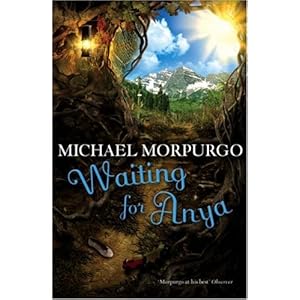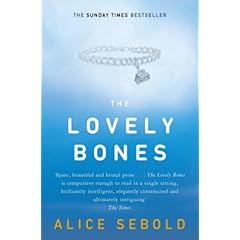 Mish @ Stage And Canvas convinced me to read this book with a comment on the Great Movie Adaptations' Weekly Geeks. It sounded like a fun, light-hearted read, and that's exactly what it was. Fun. Light-hearted. Feel good.
It's a book that combines the best elements of all the classic fairy tales, and exaggerates them to the point of hilarity. There's true love, poison, revenge, hatred, pride, giants, miracle men, witches, great fencers, epic duels, beasts, torture, the villain and his cronies, and the hero who has to save the day.
Mish @ Stage And Canvas convinced me to read this book with a comment on the Great Movie Adaptations' Weekly Geeks. It sounded like a fun, light-hearted read, and that's exactly what it was. Fun. Light-hearted. Feel good.
It's a book that combines the best elements of all the classic fairy tales, and exaggerates them to the point of hilarity. There's true love, poison, revenge, hatred, pride, giants, miracle men, witches, great fencers, epic duels, beasts, torture, the villain and his cronies, and the hero who has to save the day.
It's a complicated plot, where in the opening section, the most beautiful girl in the world, Buttercup, realises she's in love with the farm boy, Westley, and she professes her love, which is obviously reciprocated. However, Westley decides to go to America to seek his fortune, but he is killed by the Dread Pirate Roberts. Devastated, Buttercup says she must never love again. And she doesn't.
When Prince Humperdinck (don't you love the name?) finds her, he asks for her hand in marriage, saying the matrimony needn't be bound by love. Buttercup agrees to the union, but, before the grand wedding, she is kidnapped by a genius Sicilian hunchback, a giant (who fears loneliness), and a wizard fencer (who is seeking revenge on the nobleman who killed his father). A man in black, better with the sword than one of the best fencers in time, stronger than the giant, and cleverer than the hunchback saves her, but ends up leading her to the nightmarish Fire Swamp, with quicksand and ROUS, or Rodents of Unusual Size. And this is there I stop telling the tale, lest I give too much away.
How can you not love a book which has lines like:
My name is Inigo Montoya. You killed my father. Prepare to die.
or,
"Fool!" cried the hunchback. "You fell victim to one of the classic blunders. The most famous is 'Never get involved in a land war in Asia,' but only slightly less well known is this: 'Never go in against a Sicilian when death is on the line.'"
He was quite cheery until the iocane powder took effect.
I was literally laughing out loud, and was thoroughly entertained. I loved the movie, and I love the book a little bit more, specially for its twisted plot, and for the obscure ending.
What, in my opinion, is truly genius though, is the fact that this is supposed to be the "good parts" version of S. Morgenstern's classic tale of true love and high adventure. However, S. Morgenstern is a figment of Goldman's imagination, and doesn't actually exist. Why is this genius? Well, only because at the beginning of the book Goldman states it's his favourite book ever, and his father read it to him while he was recovering from pneumonia. Throughout the book, Goldman adds "notes," explaining some of the cuts he has made, for the original work was apparently epically long. These notes also include some of his thoughts, like, how a children's book is bound to have a happy ending, and how, the leading lady will not be killed by sharks half-way through the book!
'Life isn't fair, Bill. We tell our children that it is, but it's a terrible thing to do. It's not only a lie, it's a cruel lie. Life is not fair, and it never has been, and it's never going to be.'
These comments from the so-called "abridger" reads completely independently, and, can easily be skipped/skim-read. But then, Goldman talks at length about the trouble he had with his fictitious book's estate, and he makes an incredibly convincing case - which, retrospectively, I attribute to being satirical as well.
It's a great book for children, and adults, and it just is a fairy tale as no other.
Rating : A+
 Amy Tan's debut novel, The Joy Luck Club, is the first book by her that I have read. It is also the first book I've read with strong Chinese references, so I wasn't quite sure as to what I should expect from this book.
The Joy Luck Club is the story of four Chinese women who have immigrated to the United States of America, under different circumstances, and all four are attempting to bring up their daughters in America - daughters who think like Americans, despite their mothers best efforts to instil in them their Chinese culture and heritage.
Amy Tan's debut novel, The Joy Luck Club, is the first book by her that I have read. It is also the first book I've read with strong Chinese references, so I wasn't quite sure as to what I should expect from this book.
The Joy Luck Club is the story of four Chinese women who have immigrated to the United States of America, under different circumstances, and all four are attempting to bring up their daughters in America - daughters who think like Americans, despite their mothers best efforts to instil in them their Chinese culture and heritage. Coraline has just moved to a new house, and after acquainting herself with the neighbours, she sets about to 'explore' the place, for, you see, she is a self-acclaimed "explorer". She finds the well she's been warned to stay away from, just to know what to stay away from, and spends as much time outdoors as possible.
However, one rainy day, she stumbles upon a door in the living room, which opens only to greet her with a brick wall. And apparently, nothing on the other side - or so Coraline's mother tells her.
Coraline has just moved to a new house, and after acquainting herself with the neighbours, she sets about to 'explore' the place, for, you see, she is a self-acclaimed "explorer". She finds the well she's been warned to stay away from, just to know what to stay away from, and spends as much time outdoors as possible.
However, one rainy day, she stumbles upon a door in the living room, which opens only to greet her with a brick wall. And apparently, nothing on the other side - or so Coraline's mother tells her. Set in Papua New Guinea, in the 1990s, this book is narrated by Matilda, an adolescent, who witnesses the horrors of civil war first hand. The book opens with many people fleeing the island, and it being lost to the outside world, as the 'redskins' (the government soldies) and the 'rambos' (rebels) advances.
Set in Papua New Guinea, in the 1990s, this book is narrated by Matilda, an adolescent, who witnesses the horrors of civil war first hand. The book opens with many people fleeing the island, and it being lost to the outside world, as the 'redskins' (the government soldies) and the 'rambos' (rebels) advances. This book was recommended to me by a younger cousin, and I figured, it'll be a fun young adult book, which would be a pleasant distraction from most of the reading I've done this year. Also, I was planning on reading a young-adult book for the
This book was recommended to me by a younger cousin, and I figured, it'll be a fun young adult book, which would be a pleasant distraction from most of the reading I've done this year. Also, I was planning on reading a young-adult book for the  Background:
Background: We've all faced the wrath of high school. Either we were too fat, or too thin. Either people expected too much of us, or nothing at all. Either we were 'cool', or we were 'geeks'. Some of us made our peace with it, while some of us still hate that part of our past. Children can be cruel. Adolescents more so. And this book draws on that very attribute of teenagers, to show how harmless 'fun' resulted in a young attractive girl deciding that suicide is her only escape. Thirteen reasons. Thirteen. The Baker's Dozen. And the protagonist is called Hannah Baker.
We've all faced the wrath of high school. Either we were too fat, or too thin. Either people expected too much of us, or nothing at all. Either we were 'cool', or we were 'geeks'. Some of us made our peace with it, while some of us still hate that part of our past. Children can be cruel. Adolescents more so. And this book draws on that very attribute of teenagers, to show how harmless 'fun' resulted in a young attractive girl deciding that suicide is her only escape. Thirteen reasons. Thirteen. The Baker's Dozen. And the protagonist is called Hannah Baker. Twelve year old Jo, a shepherd boy, lives in a small French mountain village, during the late 1930s-early 1940s. World War II's broken out, and Jo's father is away in action, while Jo is assuming some of his father's responsibilities, and simultaneously attending school. The War is far away from this village, and to Jo it almost seems quite unreal, and he's unsure of his opinion about it.
What Jo thought about the war and about the occupation seemed to depend on whether he had just talked to Maman or to Grandpere: he could never make up his mind.
Twelve year old Jo, a shepherd boy, lives in a small French mountain village, during the late 1930s-early 1940s. World War II's broken out, and Jo's father is away in action, while Jo is assuming some of his father's responsibilities, and simultaneously attending school. The War is far away from this village, and to Jo it almost seems quite unreal, and he's unsure of his opinion about it.
What Jo thought about the war and about the occupation seemed to depend on whether he had just talked to Maman or to Grandpere: he could never make up his mind.  This is Sebold’s debut novel, and while there’s lots of loopholes in the story, the premise in itself is interesting.
This is Sebold’s debut novel, and while there’s lots of loopholes in the story, the premise in itself is interesting.